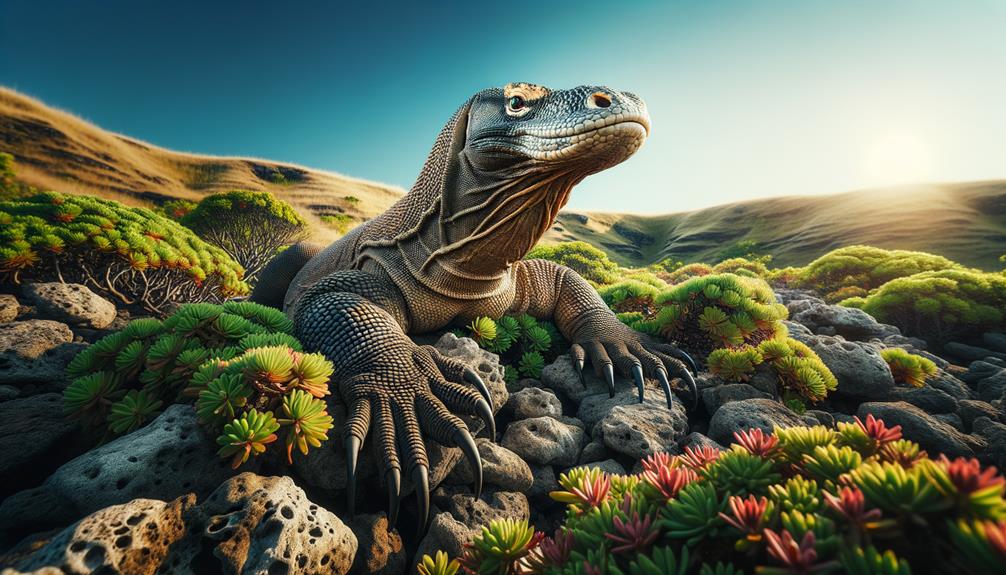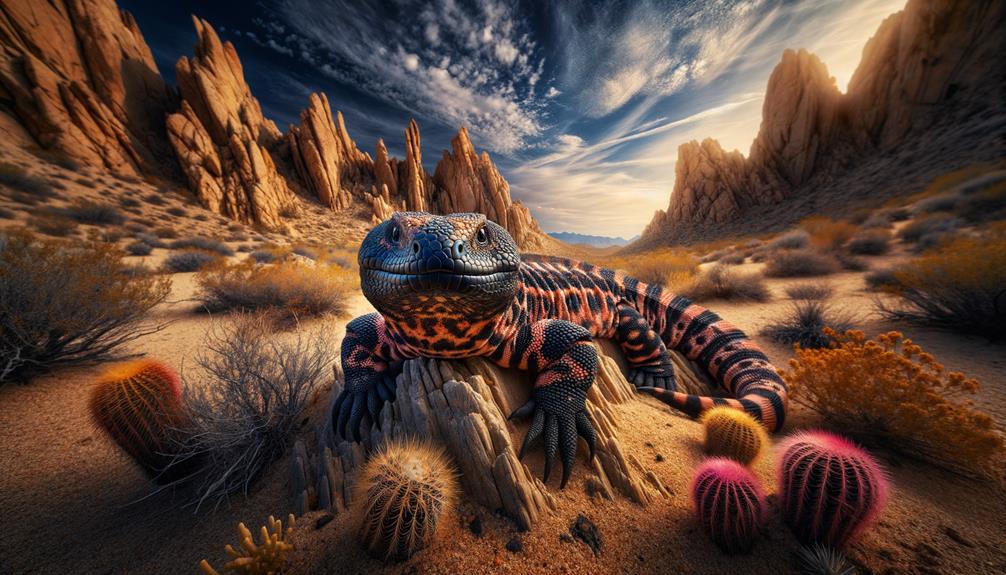Discover the World of Lizards
- Home
- Lizard
The World of Lizards
Informational Resources
Komodo Dragons Largest Lizards
Ferocious and ancient, Komodo dragons dominate their habitats with sheer size and power—discover what makes these lizards the unparalleled apex...
More Reptile InfoFrilled Lizards Prehistoric Marvels
Uncover the captivating survival tactics of frilled lizards, from their dramatic frill displays to their termite-dependent diets, and explore their...
More Reptile InfoTokay Geckos Nocturnal Acrobats
Yearning to uncover the secrets behind Tokay Geckos' nocturnal acrobatics and dwindling numbers? Dive in to explore their fascinating world!
More Reptile InfoGila Monsters Venomous Dwellers
Notorious for their venomous bite, Gila monsters are fascinating lizards with unique adaptations that are under threat—discover their secrets before...
More Reptile InfoAnoles Colourful Caribbean Jewels
Journey into the vibrant world of Caribbean anoles, where their stunning colors and adaptive behaviors reveal secrets of survival and...
More Reptile InfoGreen Iguanas Impressive Herbivores
Beneath their vibrant exterior, green iguanas reveal a world of survival tactics and ecological contributions that will leave you intrigued...
More Reptile InfoChameleons Masters of Camouflage
Join us as we delve into the astonishing world of chameleons and uncover the secrets behind their incredible camouflage abilities.
More Reptile InfoBlue-Tongued Skinks Gentle Giants
Step into the world of blue-tongued skinks and uncover why these gentle giants make remarkable pets and fascinating companions.
More Reptile InfoWhy Trust Us?
- Expertise
- Comprehensive Services
Our resource hub draws from a vast knowledge base accumulated through years of dedicated research and collaboration with reptile experts. We cover a wide range of topics, from species profiles and care guides to conservation efforts and the latest scientific advancements in herpetology.
- Personalized Approach
Our team is committed to understanding and accommodating those individual requirements to ensure the happiness and well-being of your reptile. We believe that every reptile is special, and we strive to provide care that is personalized to their specific needs and personality.
- Trusted Reputation
- Education and Support
- Ethical Practices
- Trusted Reputation
- Education and Support
- Ethical Practices
Frequently Asked Questions
We offer a variety of comprehensive digital guides on our website, including:
- Lizard species profiles
- Habitat setup guides
- Nutrition and feeding information
- Health and wellness guidelines
- Breeding and reproduction resources
- Beginner’s guides to lizard keeping
These guides are accessible online to provide accurate lizard care information to enthusiasts.
Common signs of an unhealthy reptile include loss of appetite, lethargy, abnormal shedding, sunken eyes, and visible injuries. It’s essential to observe the animal closely and seek guidance from a qualified reptile veterinarian for proper diagnosis and treatment.
Feeding requirements vary among reptile species, ages, and activity levels. Some reptiles may need to be fed daily, while others thrive on a less frequent feeding schedule. The diet should consist of appropriate live prey or commercially prepared foods specific to the reptile’s nutritional needs.
As an informational resource hub, we do not offer any physical products for sale or shipping. All of our reptile guides, care information, species profiles, and educational resources are available digitally through our website and online platform. We do not have a shipping process or handle product orders related to reptiles.
A comprehensive reptile habitat should include appropriate heating and lighting sources, proper substrate or bedding material, hiding spots or caves, and enrichment items to mimic the animal’s natural environment. The specific requirements may vary based on the reptile species.
Reptile ownership regulations can vary by state, province, or country. It’s essential to research and comply with local laws and requirements, which may include permits, licenses, or restrictions on certain species. Responsible reptile ownership also involves understanding the potential risks and taking appropriate safety measures.
Contact us today!









